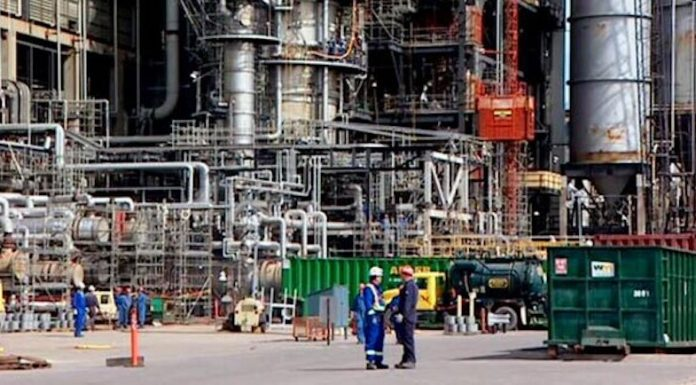Africa plays a vital role in the global oil market, with its producing nations contributing around 8% of total global supply. However, the second quarter of 2023 has seen numerous production challenges.
From unplanned outages to maintenance activities, a plethora of events and circumstances contributed to a slight decrease in Africa’s oil and condensate production during this period.
The African Energy Chamber (AEC) explores the production decline in our newly released report, “The State of African Energy: 2Q 2023 Outlook.” It notes that between January and May of this year, Africa lost approximately 180,000 barrels per day (bdp) of production due to unplanned outages, while planned maintenance activities shaved off an additional 83,000 bpd.
Nigeria’s Ongoing Struggle
At the heart of Africa’s oil production decline lies Nigeria, a heavyweight in the continent’s oil sector. The nation faced a series of unplanned outages during the first five months of this year, losing around 165,000 bpd.
One of the main causes of Nigeria’s production decline was force majeures implemented because of such issues as pipeline blasts, rampant crude theft, illegal connections on existing pipelines, fire incidents, and industrial disputes. In addition, some terminals have not been operating at full capacity, leading to additional outages and declines in production. To make matters even worse, maintenance activities on fields flowing the Forcados, Usan, and Abo crude streams had an additional impact on Nigeria’s output in 2023.
This is not the first time Nigeria’s oil production has been impacted by security issues. It will be critical,going forward, for energy industry stakeholders and government leaders to cooperate to find sustainable solutions that protect Nigeria’s infrastructure and prevent more product outages.
Balancing Production with Sustainability
Maintenance activities are necessary for sustaining production levels and ensuring the longevity of oil infrastructure. However, in Africa, maintenance efforts too often lead to declines in production. Much like Nigeria, Angola, another significant contributor to the continent’s oil supply, experienced a modest production outage due to maintenance activities at the Dalia and Kizomba development hubs, leading to a 30,000-bpd production loss.
No further maintenance activities have been announced for the second half of 2023, therefore, apart from regulatory cuts, no outages are expected.
That being said, African states must attempt to strike the right balance between production and essential maintenance activities to ensure the resilience of their oil and condensates production.
OPEC Targets and Voluntary Cuts
OPEC production targets and voluntary cuts have further complicated Africa’s oil production endeavors. Algeria stands as the only African OPEC member nation with a production capacity above the OPEC target in 2023. Algeria’s compliance with the cuts, which totaled 64,000 bpd in the first half of 2023, showcases the nation’s commitment to supporting the stability of global oil markets.
These cuts, though intended to stabilize prices, have presented challenges for countries like Nigeria and Libya, where internal factors like civil struggles have already disrupted oil production. The heavy production outages in Nigeria, for instance, have resulted in the country’s output being dragged down below the OPEC targets. Angola, Congo, and Gabon are also expected to see 100% compliance with OPEC targets during 2024 as their oil and condensate production is already less than OPEC targets.
Libya’s Shifting Landscape
This isn’t to say that there haven’t been signs of promise and growth this quarter. After a year of volatile production in Libya last year, marked by multiple production outages due to civil unrest, the country’s oil production seems to be stabilizing.
Earlier this month, Libya’s National Oil Corporation announced that international oil companies Eni (Italy) and BP (United Kingdom) had notified it about lifting force majeure and resuming activities in several onshore and offshore blocks.
Libya also is preparing to launch an oil and gas tender — its first in 17 years — in 2024. And the country is now claiming it can raise oil production from about 1.2 million bpd (to as much as 3 million bpd in the next several years.
Navigating Uncertainty
Assuming no more unplanned outages take place this year, we’re estimating that average output for this period will be approximately 6.66 bpd, and Africa’s annual output still will exceed last year’s flows by about 50,000 bpd.
However, the challenges faced by Africa’s oil sector during the second quarter of 2023 must be the impetus for comprehensive measures to minimize further outages. Yes, some situations are beyond anyone’s control, but African nations must focus on addressing the vulnerabilities in their oil infrastructure and enhancing security measures to curb issues like crude theft and illegal pipeline connections.
Investments in new technology and innovation, made possible through collaborations with international oil companies, can help reduce unplanned outages as well and support more efficient maintenance activities. By adopting predictive maintenance techniques, countries can proactively address outage issues before they lead to output disruptions.













